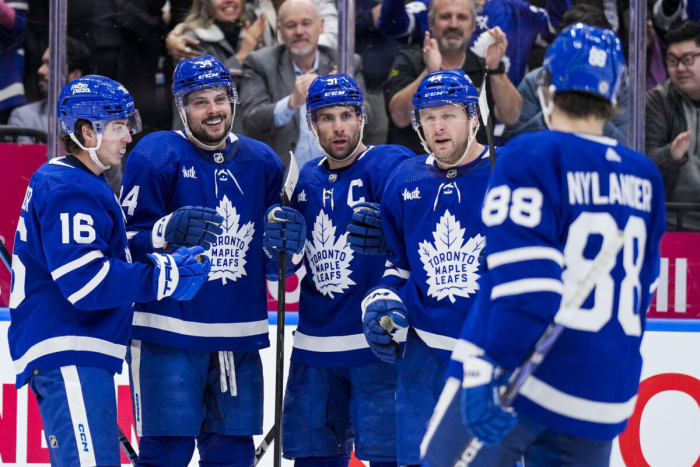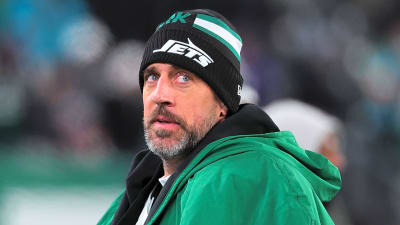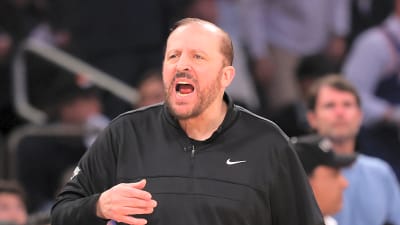
“Why would you want to stay somewhere you don’t have a future, where people believe you’re part of the solution?”
That question was posed rhetorically by Nick Kypreos on a recent episode of Real Kyper & Bourne as he speculated about the possibility of Toronto Maple Leafs blue-liner Morgan Rielly waiving his no-movement clause. Like much of Kypreos’ commentary, it wasn’t a question — it was a provocation. A way to stir the pot, then present himself as the voice of realism. It invites argument, not reflection, and subtly frames loyalty as foolishness in a market that often punishes those who buy in — a contradiction Kypreos rarely, if ever, acknowledges.
But what happens when we stop and take that question seriously? If we can no longer tell the difference between commitment and a contract we want to dump, what does it say about the state of the Maple Leafs—and the city that follows them?
Morgan Rielly: The Anchor of an Era in Toronto
Rielly was drafted fifth overall in 2012. He’s played over 800 games for the Maple Leafs, anchoring the blue line through the chaos of tank years and into a decade defined by hope, disappointment, and eternal second-round ceilings. He was never the flashiest, never the face of the franchise, but he was often its conscience.
He showed up, saying the right things and carrying the load quietly. Over the seasons, he’s supported a variety of community engagements with fans and, by doing so, has made himself and his family part of the larger Toronto community. It’s his home.
This spring, during the postseason, as he did last postseason, he played some of the best hockey of his career. Yet, weeks later, fans and media figures wonder if he’s part of the problem.
Toronto’s Culture of Criticism
This isn’t new. Toronto is a market where loyalty and longevity often become liabilities. Mitch Marner — a hometown star with point-per-game numbers and a Selke nomination — now seems like a foregone conclusion to be traded. Even the team’s greatest goal-scorer, Auston Matthews, gets questioned after every early exit.
If these players can’t escape scrutiny, what chance does Rielly have?
In Toronto, fans don’t just demand accountability — they often require a scapegoat. As the Maple Leafs prepare for another reset, the knives have turned toward Rielly, whose $7.5 million AAV contract has five years remaining and includes complete no-move protection. The contract itself isn’t out of line with what reliable top-four defensemen make in today’s NHL, and in five years, it will grow increasingly more team-friendly.

Kypreos speculated that the team might look to Rielly first if change is inevitable. Why? He might fetch some value because his deal is manageable, especially for a team like the Vancouver Canucks near his hometown. There’s logic to the thought of Rielly returning to where he grew up. But that is likely no longer his home. Toronto is.
The Weight of the No-Move Clause
Teams and salary cap analysts often view a no-move clause as an obstacle. But for players, it’s a message of mutual trust. When Rielly re-signed in 2022, he didn’t take top dollar — he chose stability. He chose Toronto. So, what does it say about the culture in Toronto when a player who made that choice—who bought in fully—is the one we now consider expendable?
Who in the organization is still considered part of the solution? Matthew Knies, perhaps — he’s young, hits hard, and hasn’t had time to disappoint anyone yet. Chris Tanev and his gritty style will undoubtedly appeal. Almost every core veteran — from William Nylander to Matthews to John Tavares — has, at one point or another, been cast as the problem. Commitment here is conditional. You’re only safe until your next bad bounce.
What Are the Maple Leafs Building?
So, once again, a player who stayed is being asked if he should go. Maybe the real question isn’t about Rielly at all. Perhaps it’s about us — the fans, the media, the analysts, and the organization. What kind of culture are we fostering when loyalty is interpreted as stagnation and a no-move clause is treated like a mistake? And, perhaps even worse, when a player who chooses NOT to waive that no-move clause is labelled as disloyal?
If players like Rielly and Marner, who’ve invested deeply in this organization, are now seen as part of the problem, it’s worth asking what kind of culture we’re creating. If staying, caring, and committing still get you labelled as part of the problem, then maybe it’s time to ask: What kind of solution are we even chasing?
More must-reads:
- Bruins name former player as new HC
- Blue Jackets' Sean Monahan receives unexpected visit after winning Masterton Trophy
- The 'NHL Selke Trophy winners' quiz
Breaking News
Trending News
Customize Your Newsletter
 +
+
Get the latest news and rumors, customized to your favorite sports and teams. Emailed daily. Always free!







